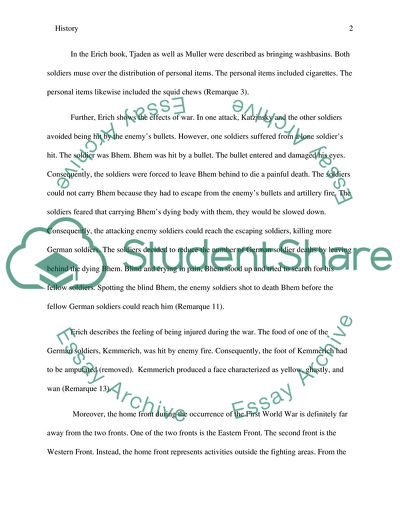Cite this document
(All Quiet on the Western Front by Remarque Book Report/Review Example | Topics and Well Written Essays - 2500 words, n.d.)
All Quiet on the Western Front by Remarque Book Report/Review Example | Topics and Well Written Essays - 2500 words. https://studentshare.org/military/1864112-world-war-one
All Quiet on the Western Front by Remarque Book Report/Review Example | Topics and Well Written Essays - 2500 words. https://studentshare.org/military/1864112-world-war-one
(All Quiet on the Western Front by Remarque Book Report/Review Example | Topics and Well Written Essays - 2500 Words)
All Quiet on the Western Front by Remarque Book Report/Review Example | Topics and Well Written Essays - 2500 Words. https://studentshare.org/military/1864112-world-war-one.
All Quiet on the Western Front by Remarque Book Report/Review Example | Topics and Well Written Essays - 2500 Words. https://studentshare.org/military/1864112-world-war-one.
“All Quiet on the Western Front by Remarque Book Report/Review Example | Topics and Well Written Essays - 2500 Words”. https://studentshare.org/military/1864112-world-war-one.


